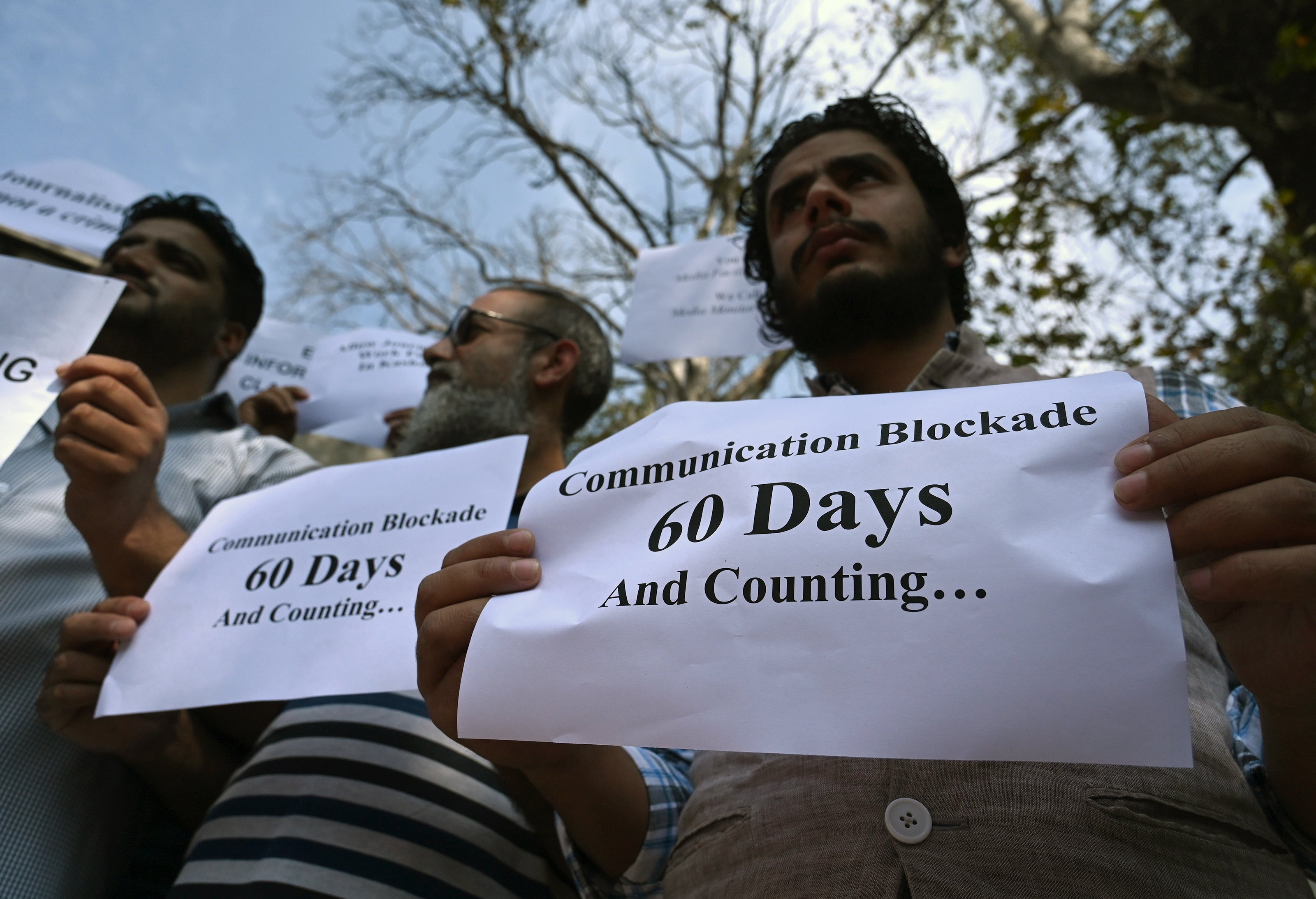Modi government’s internet blackouts hurt the poor and curbed job opportunities, HRW says
At least 127 internet shutdowns were identified by the HRW and Internet Freedom Foundation between 2019 and December 2022, the most of any country in the world

More than 100 internet shutdowns by India’s Narendra Modi administration between 2019 and 2022 hurt the poor and the vulnerable by restricting their work opportunities and impairing their access to food and livelihoods, according to a new report.
This is in direct contradiction with the federal government’s ambitious flagship programme “Digital India” which aimed to aid millions of citizens across the country’s length and breadth, the report by Human Rights Watch said.
India has deployed more internet blackouts, dubbed erratic and unlawful by researchers, than any other nation in the world since 2018, the report said.
Such shutdowns hurt the poor in India in a number of ways, it said, including preventing them from marking their attendance under a government employment scheme which allows people to earn a daily wage in villages and towns across the country.
The Independent has reached out to the government’s IT ministry for its response to the report.
“When the internet is shut down, I have no work, do not get paid, cannot withdraw any money from my account, and cannot even get food rations,” a 35-year-old Dalit woman with five children in Rajasthan told HRW.
Authorities in India have used internet shutdowns as “default policing measures” at a time when the Modi administration is pushing to make the internet fundamental to every aspect of life, said Jayshree Bajoria, associate Asia director at HRW.
“Cutting off access to the internet should be the absolute last resort with safeguards to ensure people aren’t deprived of their livelihoods and basic rights,” she said in a statement.
Researchers spoke to more than 70 people from most parts of India such as Kashmir, Rajasthan, Haryana, Jharkhand, Assam, Manipur and Meghalaya, including those directly impacted by the internet shutdowns.
At least 127 internet shutdowns were identified by the HRW and the Internet Freedom Foundation between 2019 and December 2022.
Jammu and Kashmir saw the most internet shutdowns than any other Indian state, barring locals from any internet-related activity such as banking or ordering supplies in what has been described as “the silence of the graveyard” by one professional, according to the report.
The Indian state bordering Pakistan saw more than 550 days of internet blackout after the Modi administration stripped it off its special status in August 2019. The six-month-long communications shutdown cost more than $2.4bn (£1.9bn), and led to nearly 500,000 job losses, according to the Kashmir Chamber of Commerce and Industry.
Eighteen states out of the total 28 shut down the internet at least once during these three years.
“During the lengthy internet shutdown in Jammu and Kashmir that began in August 2019, journalists were unable to contact their sources or editors, or to file their reports, severely impairing press freedom,” the report pointed out, adding that the Modi administration offered a media centre in a private hotel with only four terminals initially that had fixed internet connections to service around 300 journalists working in the valley.
“The worst was surveillance and the inability to protect their sources, if they chose to use the government’s media centre, journalists said,” the report said.
Internet shutdowns were also used as a tool by state governments in India who used the blackout of one of the biggest communication channels to prevent protests or in response to demonstrations, the HRW report said.
Another 37 internet blackouts were rolled out to stop students from cheating in examinations for school or government jobs.
At least 18 state-level internet shutdowns were in response to communal violence, and the same number for law and order concerns.
However, suspension of internet services in India requires the state administration to publish the shutdown orders, which were not produced by 11 of the 18 states as sought by the Supreme Court. Others did not justify the risk to public safety, the report stated.
Subscribe to Independent Premium to bookmark this article
Want to bookmark your favourite articles and stories to read or reference later? Start your Independent Premium subscription today.

Join our commenting forum
Join thought-provoking conversations, follow other Independent readers and see their replies